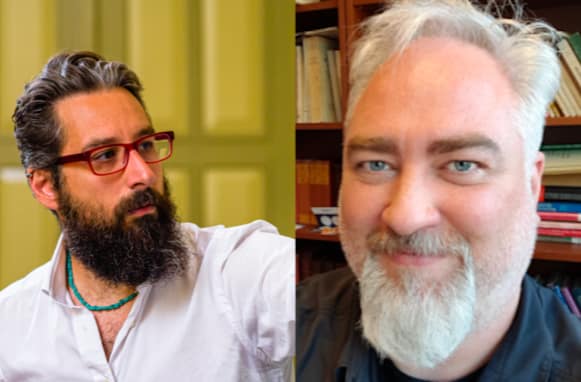
Scholarship PhDs: inequality and accumulative disadvantages
In 2016, the University of Groningen and Erasmus University Rotterdam joined on an experiment: a new PhD scholarship program. I, as well, started my PhD as a bursary student at the University of Groningen, occupying one of the positions made available by this program. However, three years into the experiment, the program fails to deliver what it promised and the discontent lead to many PhD bursary students like me voicing their concerns and demand a change.
At the end of 2019, a group of PhD Scholarship students at the University of Groningen published a manifesto demanding the same rights and pay as their employed peers. On February 4, the manifesto will be presented to the parliament in Den Haag, with the hope that MPs will intervene. It is still possible to add your voice to ours by signing the petition.
If you are not familiar with the conditions offered together with the PhD positions, you are not in such a different position than the many PhD students of the Scholarship experiment. In a nutshell, Scholarship students conduct research like employed PhDs, but are registered as fictitious workers and students of the University. Although both groups work in the same place and are basically doingthe same work, Scholarship students earn less, with the income difference mounting up to €500 net (per month) in the fourth year. Furthermore, Scholarship students miss out on many secondary employment benefits that ‘regular’ PhDs have, such as pension contribution, relocation support or reimbursement for buying a laptop or a bicycle.
One of the ‘benefits’ of the experiment is that the Scholarship PhD students do not have to teach. Though this would be a ground for the wage difference, it actually causes a further disadvantage for Scholarship PhDs: having teaching experience is required for pursuing a career in academia. To circumvent this, the university allows Scholarship PhDs to teach voluntarily as part of a teacher training program. During this training, Scholarship students neitherreceive the useful University Teaching Qualification nor monetary compensation. In contrast, employee PhDs, but also student assistants, can teach without having to do a training program and get paid to do so. Scholarship PhDs are placed in an apparent lower rank relative to their peers, as well as student assistants. We are forced to choose between working for free, or having worse labour market prospects. Like many of my peers, I also supervise students without any payment, only to gain experience as a teacher.
Another advantage attributed to the Scholarship system is the freedom in the trajectory of research. Scholarship students are required to apply for the PhD funding with a proposal and therefore decide on the matters of their research. Thus, Scholarship students would also not be in a hierarchical relationship with their supervisors. However, the Scholarship experiment does not provide anything near the freedom it claims. Prior to application, the applicant is required to find a supervisor and the proposed project must suit the interest and the expertise of the supervisor. In their proposals, PhD applicants have to promote the scientific impact of the research idea and consider its feasibility. Even when the ideas are purely formed by students, input from the prospective supervisors are required in order to evaluate the scientific impact of research, and to convey this effectively in the proposal. Similar master-apprentice relationship also continues throughout the PhD period. Even though one may argue that Scholarship students are “free” in deciding the path of their research, contractually they are prohibited to publish without the agreement of their supervisors or to take away the data with them. Although different levels of freedom are experienced in different faculties or departments, based on my personal experience Scholarship students neither possess nor require more freedom than their peers with regular contracts. Furthermore, supervisors tend to treat their Scholarship PhDs the same as employee PhDs.
Since 2017, the University has been informed multiple times about the problems faced by the Scholarship students and the discontent. Instead of aiming for improvements, the University Board of the University of Groningen agreed to open up 650 new Scholarship PhD positions. From the perspective of the University, the Scholarship experiment means more PhDs at a low cost. However, when investments to the facilities are not implemented, a higher number of PhDs is likely to bring in a number of problems as well. For many faculties, already scarce office space is likely to be the first problem faced following the higher number of PhDs, unless an expansion is on the way. Furthermore, an increased number of PhD students leads to an increase in the workload of the academic staff supervising them, that would also lead to them having less time for their students. In the end, all of these PhD students need to compete for a small number of tenure track positions, or leave academia.
So why did we, Scholarship PhDs, accept such disadvantageous contracts in the first place? The reasons vary, but at their core lie both ignorance and enthusiasm. Most of us start our PhDs right after a Masters degrees, making this position the first in our careers. Because of this inexperience, it was easy to be unaware of what to expect with regards to rights and payments, being naively satisfied by finally being an adult. Combining this with the challenges of imposter syndrome, which is highly prevalent among new PhDs, our priority was to fulfill the requirements for our PhD, whatever it takes. After the initial excitement wears off, we start comprehending our unequal and disadvantageous position. We start to see that all of the “freedoms” we were promised were already part of the scientific culture in our departments. We start to worry about the life after the PhD, and the importance of experiences like teaching for our future career.
The Minister of Education has promised to end the experiment, if it shows adverse effects on the research climate. In such case, the University is compelled and has promised to offer us employed PhD contracts. If Scholarship students are suffering from the consequences of this experiment, why do the University and the Minister not stand by their promise?



